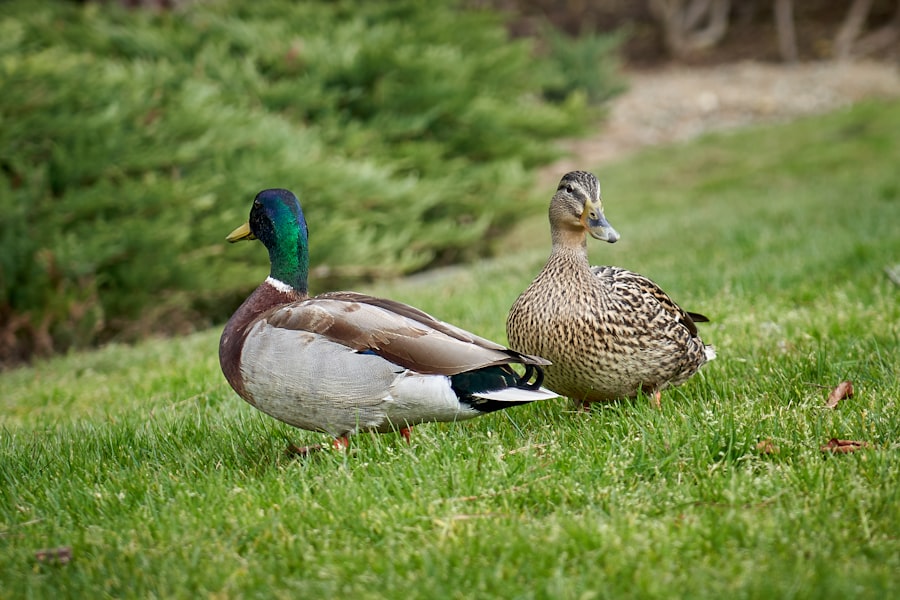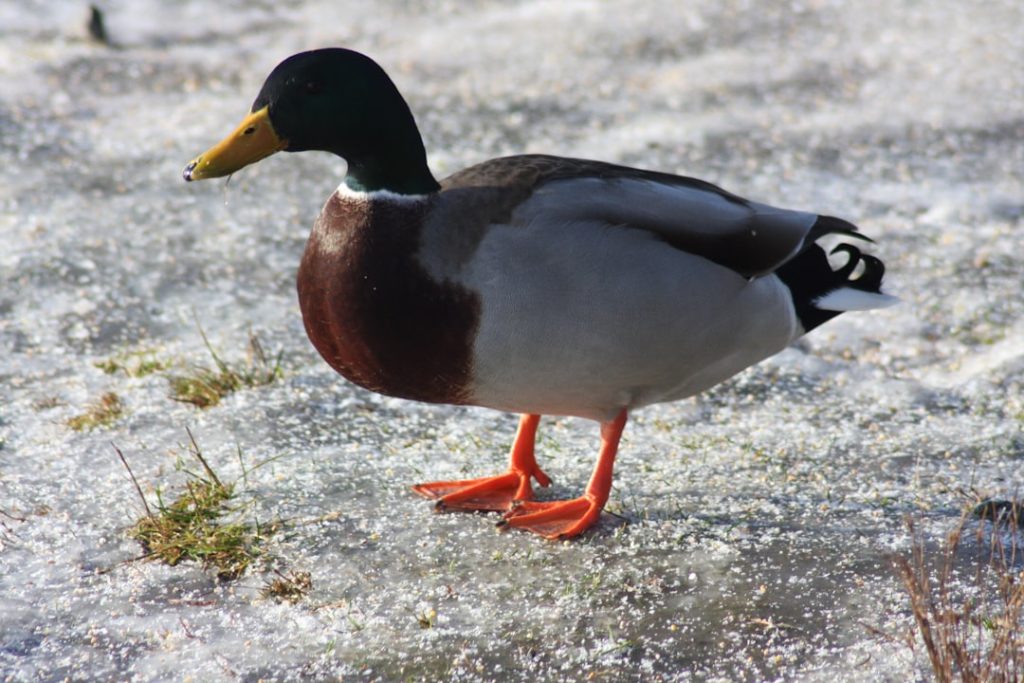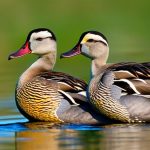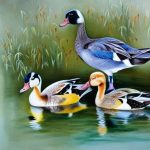Duck breeding is a rewarding and fulfilling endeavor for many farmers and homesteaders. Ducks are not only valuable for their meat and eggs, but they also provide pest control, fertilizer, and entertainment. Breeding ducks can be a profitable business, as there is a growing demand for duck products in the market. Whether you are a beginner or an experienced farmer, understanding the basics of duck breeding is essential for success.
Breeding ducks involves selecting the right breeds, providing proper care and nutrition, and implementing effective breeding practices. It is important to consider factors such as breed characteristics, climate suitability, and market demand when choosing ducks for breeding. Additionally, understanding the breeding practices and common challenges in duck breeding is crucial for achieving successful results. In this article, we will explore the key factors to consider in choosing ducks for breeding, the top breeds for duck breeding, breeding practices, tips for successful duck breeding, common challenges, and resources for further learning.
Table of Contents
Key Takeaways
- Duck breeding is a rewarding and profitable venture for farmers and homesteaders.
- Factors to consider in choosing ducks for breeding include breed characteristics, egg production, and adaptability to local climate.
- Top breeds for duck breeding include Pekin, Khaki Campbell, and Indian Runner for their high egg production and meat quality.
- Breeding practices for ducks involve providing proper housing, nutrition, and breeding management to ensure healthy offspring.
- Tips for successful duck breeding include maintaining a clean environment, providing adequate space, and monitoring for any signs of illness or distress.
- Common challenges in duck breeding include predator attacks, disease outbreaks, and maintaining proper breeding ratios.
- In conclusion, duck breeding can be a fulfilling endeavor with the right knowledge and resources. Further learning can be pursued through books, online resources, and local agricultural extension services.
Factors to Consider in Choosing Ducks for Breeding
When choosing ducks for breeding, there are several important factors to consider to ensure success. One of the key factors is the breed characteristics. Different duck breeds have unique traits such as egg production, meat quality, temperament, and adaptability to different climates. It is important to select breeds that are well-suited to your specific breeding goals and environmental conditions. For example, if you are looking to breed ducks for meat production, you may consider breeds such as Pekin or Muscovy ducks known for their excellent meat quality. On the other hand, if you are interested in egg production, breeds like Khaki Campbell or Indian Runner ducks are known for their high egg-laying capabilities.
Another factor to consider is the climate suitability of the duck breeds. Ducks are adaptable to various climates, but some breeds may be better suited to specific environmental conditions. For example, some breeds are more cold-hardy and can withstand harsh winters, while others are better suited to hot and humid climates. It is important to choose breeds that can thrive in your local climate to ensure their health and productivity. Additionally, considering the market demand for duck products is crucial when choosing breeds for breeding. Understanding the demand for duck meat, eggs, and other products in your area can help you select breeds that are in high demand, ensuring a profitable venture.
Top Breeds for Duck Breeding
There are several popular duck breeds that are well-suited for breeding purposes. Pekin ducks are one of the most popular breeds for meat production due to their fast growth rate and excellent meat quality. They are also known for their calm temperament, making them easy to handle and manage. Muscovy ducks are another popular choice for meat production, as they have lean and flavorful meat. Muscovy ducks are also known for their ability to forage and are excellent natural pest controllers.
For egg production, Khaki Campbell ducks are highly favored for their exceptional egg-laying capabilities, with some individuals laying up to 300 eggs per year. Indian Runner ducks are also popular for their high egg production and unique upright stance. They are efficient foragers and can be valuable for pest control in agricultural settings. For dual-purpose breeds that are suitable for both meat and egg production, the Rouen and Welsh Harlequin ducks are excellent choices. These breeds are known for their good meat quality and decent egg production, making them versatile options for small-scale breeders.
Breeding Practices for Ducks
Implementing effective breeding practices is essential for successful duck breeding. One important practice is providing proper housing and nesting facilities for breeding ducks. Ducks require secure housing to protect them from predators and harsh weather conditions. Providing nesting boxes or areas with suitable bedding materials is crucial for encouraging natural mating behaviors and ensuring the safety of duck eggs.
Another important breeding practice is ensuring proper nutrition and care for breeding ducks. A well-balanced diet with adequate protein, vitamins, and minerals is essential for maintaining the health and reproductive performance of breeding ducks. It is important to provide access to clean water at all times, as ducks require water for digestion and grooming. Additionally, regular health checks and vaccinations can help prevent diseases and ensure the overall well-being of breeding ducks.
In terms of mating practices, natural mating is the preferred method for duck breeding. Allowing ducks to mate naturally encourages healthy reproductive behaviors and ensures genetic diversity within the flock. However, artificial insemination may be necessary in some cases, especially for rare or valuable breeds. It is important to seek guidance from experienced breeders or veterinarians when considering artificial insemination to ensure proper technique and success.
Tips for Successful Duck Breeding
To achieve successful duck breeding results, there are several tips that can be beneficial for breeders. Providing a stress-free environment is crucial for encouraging natural mating behaviors and ensuring the overall well-being of breeding ducks. Minimizing disturbances and providing ample space for ducks to roam can help reduce stress and promote healthy reproductive behaviors.
Another tip is to carefully monitor the health and reproductive performance of breeding ducks. Regular health checks, proper nutrition, and access to clean water can help maintain the fertility and productivity of breeding ducks. It is important to address any health issues promptly and seek veterinary assistance when necessary.
Additionally, maintaining proper records of breeding activities and performance can be valuable for tracking the success of breeding efforts and making informed decisions for future breeding plans. Keeping records of mating dates, egg production, hatch rates, and offspring performance can provide valuable insights into the productivity of different breeding pairs and help identify successful breeding strategies.
Common Challenges in Duck Breeding

While duck breeding can be a rewarding endeavor, there are common challenges that breeders may encounter. One challenge is managing broody behavior in female ducks. Broodiness refers to the instinctive behavior of female ducks to sit on eggs and incubate them. While broodiness is essential for hatching eggs naturally, it can also disrupt egg production and lead to aggression in some cases. Managing broody behavior through proper nesting facilities and environmental management is important for maintaining consistent egg production.
Another common challenge is ensuring proper fertility and hatchability of duck eggs. Factors such as age, nutrition, genetics, and environmental conditions can impact the fertility and hatchability of duck eggs. It is important to monitor mating behaviors, egg fertility rates, and hatch rates to identify any potential issues and make necessary adjustments to improve breeding outcomes.
Predator control is also a significant challenge in duck breeding, as ducks are vulnerable to predation from various animals such as foxes, raccoons, birds of prey, and even domestic pets. Implementing effective predator control measures such as secure fencing, predator deterrents, and guardian animals can help protect breeding ducks from potential threats.
Conclusion and Resources for Further Learning
In conclusion, duck breeding is a valuable agricultural practice that offers various benefits including meat production, egg-laying capabilities, pest control, and entertainment. Understanding the key factors to consider in choosing ducks for breeding, the top breeds for duck breeding, effective breeding practices, tips for successful breeding, and common challenges is essential for achieving successful results in duck breeding.
For those interested in further learning about duck breeding, there are various resources available including books, online articles, forums, workshops, and experienced breeders who can provide valuable insights and guidance. Investing time in learning about duck behavior, reproductive physiology, genetics, nutrition, and health management can help breeders develop a deeper understanding of duck breeding practices and improve their overall success in this rewarding endeavor. With proper knowledge and dedication, duck breeders can enjoy a fulfilling experience while contributing to the sustainable production of duck products in the agricultural industry.
If you’re considering breeding ducks, it’s important to choose the right breed for your needs. In a recent article on PoultryWizard, they discuss the best ducks for breeding and the factors to consider when making this decision. Whether you’re interested in raising ducks for meat, eggs, or as pets, this article provides valuable insights into selecting the most suitable breed for your specific goals. Check out the article here to learn more about the best ducks for breeding and how to make an informed choice for your duck breeding venture.
FAQs
What are the best ducks for breeding?
The best ducks for breeding are typically Pekin, Khaki Campbell, and Indian Runner ducks. These breeds are known for their high egg production and good fertility rates.
What should I consider when choosing ducks for breeding?
When choosing ducks for breeding, it’s important to consider factors such as egg production, fertility, temperament, and adaptability to your local climate. Additionally, consider the purpose of breeding, whether it’s for meat, eggs, or exhibition.
How can I ensure successful breeding with ducks?
To ensure successful breeding with ducks, provide them with a suitable environment, proper nutrition, and access to clean water. Additionally, monitor their health and behavior, and provide appropriate nesting areas for the females.
What are some common challenges in duck breeding?
Common challenges in duck breeding include low fertility rates, egg production issues, and potential health problems. It’s important to address these challenges by providing proper care, nutrition, and veterinary attention when necessary.
How many ducks should I start with for breeding?
The number of ducks to start with for breeding depends on your specific goals and available resources. It’s recommended to start with a small flock and gradually expand as you gain experience and understanding of the breeding process.
Meet Walter, the feathered-friend fanatic of Florida! Nestled in the sunshine state, Walter struts through life with his feathered companions, clucking his way to happiness. With a coop that’s fancier than a five-star hotel, he’s the Don Juan of the chicken world. When he’s not teaching his hens to do the cha-cha, you’ll find him in a heated debate with his prized rooster, Sir Clucks-a-Lot. Walter’s poultry passion is no yolk; he’s the sunny-side-up guy you never knew you needed in your flock of friends!







